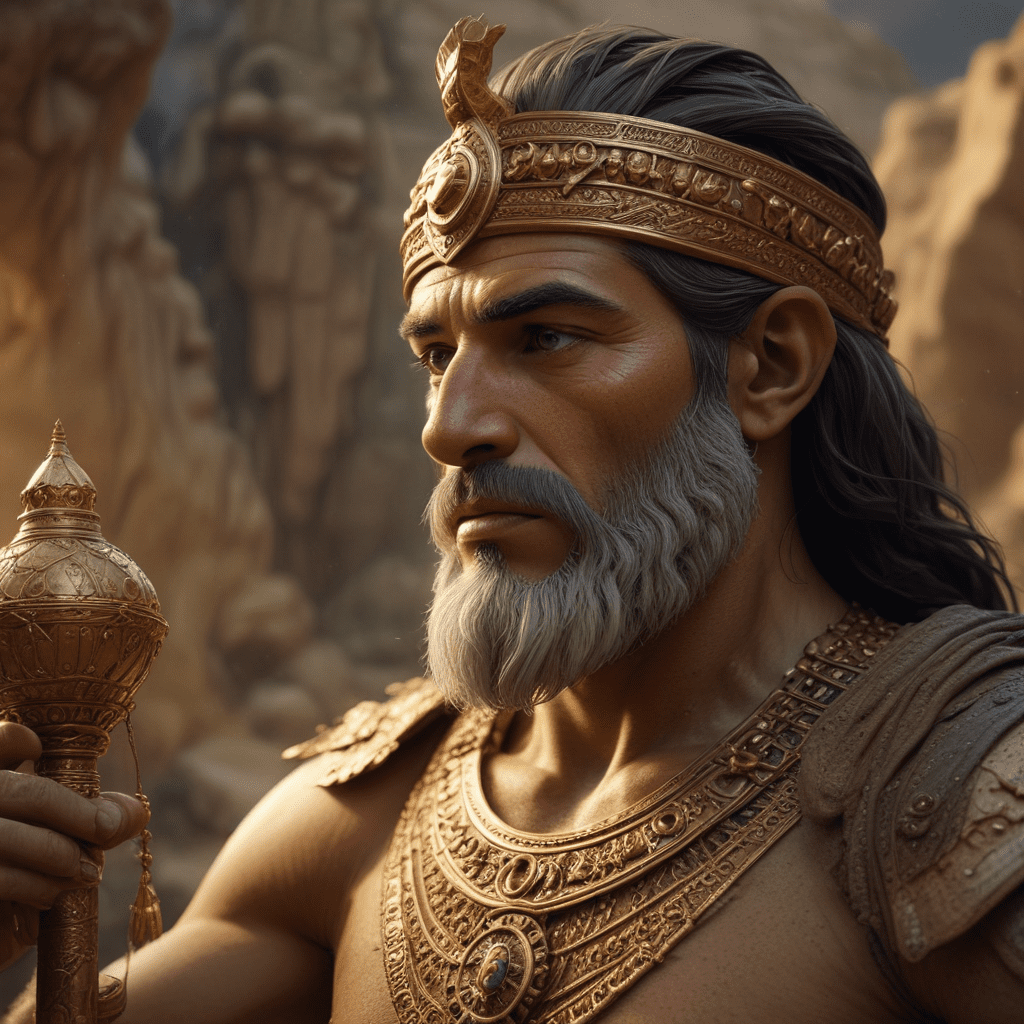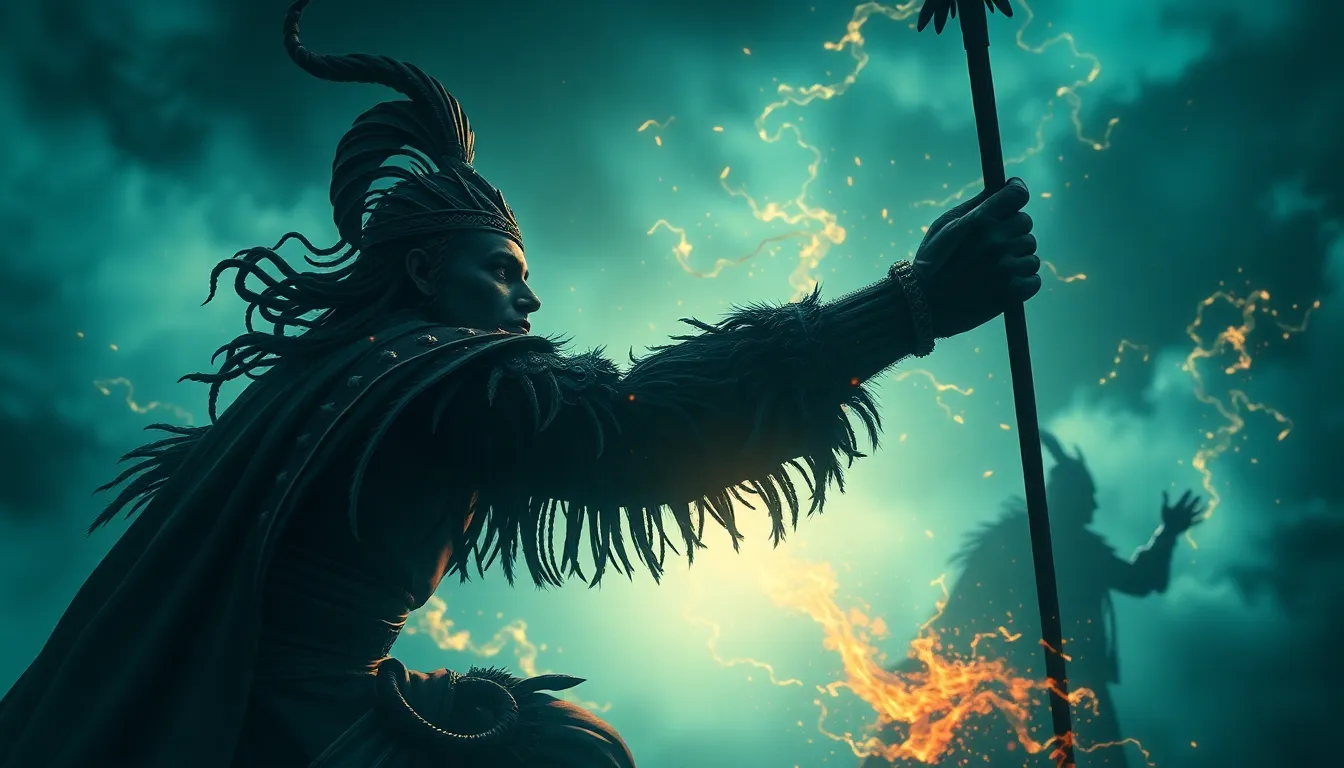The Epic of Gilgamesh: Unraveling the Oldest Known Epic in Mesopotamian Mythology
Introduction
The Epic of Gilgamesh is widely recognized as the oldest known epic poem in human history, originating in ancient Mesopotamia around 2100 BC. This remarkable work of literature tells the story of Gilgamesh, a powerful king who embarks on a series of adventures and ultimately confronts the profound questions of life and death.
The Story of Gilgamesh
The epic begins with the introduction of Gilgamesh, the mighty king of Uruk. Arrogant and tyrannical, Gilgamesh oppresses his people until the gods create Enkidu, a wild man of equal strength, to challenge him. After a fierce battle, Gilgamesh and Enkidu become close friends and embark on a series of heroic adventures, conquering monsters and slaying the Bull of Heaven. However, their triumph is short-lived, as the gods punish Enkidu for his role in killing the Bull, leading to his untimely death.
Devastated by the loss of his friend, Gilgamesh becomes obsessed with finding a way to cheat death. He embarks on a perilous journey to seek the secret of immortality, encountering challenges and learning valuable lessons along the way. Ultimately, Gilgamesh fails in his quest for eternal life, but he gains wisdom and understanding about the nature of mortality and the importance of living a meaningful life.
The Significance of the Epic
The Epic of Gilgamesh holds immense significance within Mesopotamian culture and beyond. It provides valuable insights into the Mesopotamian worldview, beliefs, and values. The epic's exploration of universal themes such as friendship, mortality, and the search for meaning in life continues to resonate with readers across cultures and time periods.
The Epic's Composition and Structure
The Epic of Gilgamesh has been found in multiple versions, written in the Akkadian language on clay tablets. While the story remains largely consistent across these versions, there are variations in details and emphasis. The epic's structure is characterized by its use of poetic devices such as parallelism, repetition, and similes, which enhance the story's rhythm and impact.
The Characters of Gilgamesh
Introduction
The Epic of Gilgamesh features a diverse cast of characters, each playing a significant role in the story's development. From the titular protagonist, Gilgamesh, to his loyal companion, Enkidu, and the enigmatic gods, these characters bring the epic to life and embody its complex themes.
Gilgamesh: The Powerful King
Gilgamesh, the king of Uruk, is a larger-than-life figure who embodies both strength and vulnerability. He is described as a mighty warrior, two-thirds god and one-third human, possessing immense physical power and charisma. However, he is also arrogant and oppressive, ruling his people with an iron fist.
Through his interactions with Enkidu and his experiences throughout the epic, Gilgamesh undergoes a transformation. He learns the importance of friendship, the value of humility, and the inevitability of death. Although he ultimately fails to achieve immortality, Gilgamesh finds a new purpose in life, seeking wisdom and understanding rather than power and control.
Enkidu: The Wild Man
Enkidu is Gilgamesh's counterpart and foil, representing the untamed natural world. Created by the gods to challenge Gilgamesh's tyranny, Enkidu is initially a wild man, living among the animals and unaware of human civilization.
Through his encounter with Gilgamesh, Enkidu is gradually civilized and becomes the king's closest friend. He joins Gilgamesh on his adventures, providing him with companionship, support, and a different perspective on life. Enkidu's death serves as a turning point for Gilgamesh, prompting him to confront his own mortality and embark on his quest for immortality.
The Gods and Goddesses
The gods and goddesses play an active role in the Epic of Gilgamesh, influencing the characters' actions and shaping the epic's events. The most prominent deity is Shamash, the sun god, who favors Gilgamesh and Enkidu and guides them on their journey. Other important gods include Ishtar, the goddess of love and fertility, who attempts to seduce Gilgamesh, and Anu, the sky god, who ultimately determines Gilgamesh's fate.
The portrayal of the gods in the epic is complex and nuanced. They are not always benevolent, but they also possess wisdom and power beyond human comprehension. Their presence adds an element of mystery and grandeur to the story, highlighting the limitations of human existence and the vastness of the cosmos.
Continuing in the next part…


